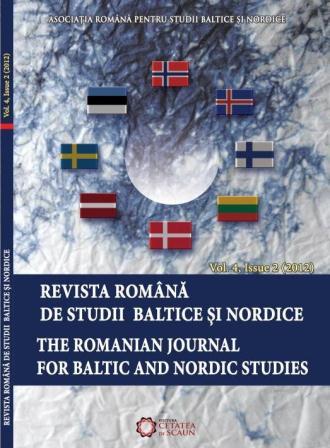Mafia links between the Balkans and Scandinavia. State of affairs
Mafia links between the Balkans and Scandinavia. State of affairs
Author(s): Matteo AlbertiniSubject(s): Politics / Political Sciences
Published by: Asociatia Romana pentru Studii Baltice si Nordice
Keywords: Transnational organized crime; Western Balkans; Scandinavia; European law enforcement; European enlargement
Summary/Abstract: The last twenty years has seen an increasing presence of Balkan organized crime groups in security reports and newspapers' headlines. This does not mean that mafia groups did not exist during Socialist Yugoslavia – even if its collapse and the following war made criminals and smugglers useful for politicians and leaders to maintain their power; it rather means that Balkan organized crime came outside its traditional areas of action in Serbia, Montenegro and Albania: less territorial and nationalist than it was before, it is now gaining prominence in an international scenario, making agreements with Italian and South American mafias – the so-called Holy Alliance – to manage drug routes towards Western Europe. One of the most interesting factors concerning Balkan mafia groups today is their presence in countries which traditionally do not have a history of organized crime, such as the Scandinavian states. One of the reasons lies in the wide percentage of immigrants moving from Balkan countries to Sweden or Norway. Since the wars of the 1990s in the former Yugoslavia, war-crimes fugitives were able to become common criminals in these countries, such as the infamous Želiko Raznjatović (“Arkan”). However, year by year, these gangs grew larger, taking advantage of the “expertise” and the resources gained during the war. In particular, the most spectacular case – the Våstberga helicopter robbery in 2009 – showed how these groups operate with military-style precision, utilize a wide number of participants, and have at their disposal laerge amounts of weapons and money. This paper will draw on the importance of Scandinavian – Balkan mafia relations in relation to three main criminal areas: drug and weapon smuggling and human trafficking, in order to underline the role of diasporas in enforcing organized crime groups and the extent to which these mafias could be a threat for the stability in both Eastern and Western Europe.
Journal: Revista Română de Studii Baltice şi Nordice
- Issue Year: 4/2012
- Issue No: 2
- Page Range: 111-150
- Page Count: 40
- Language: English

